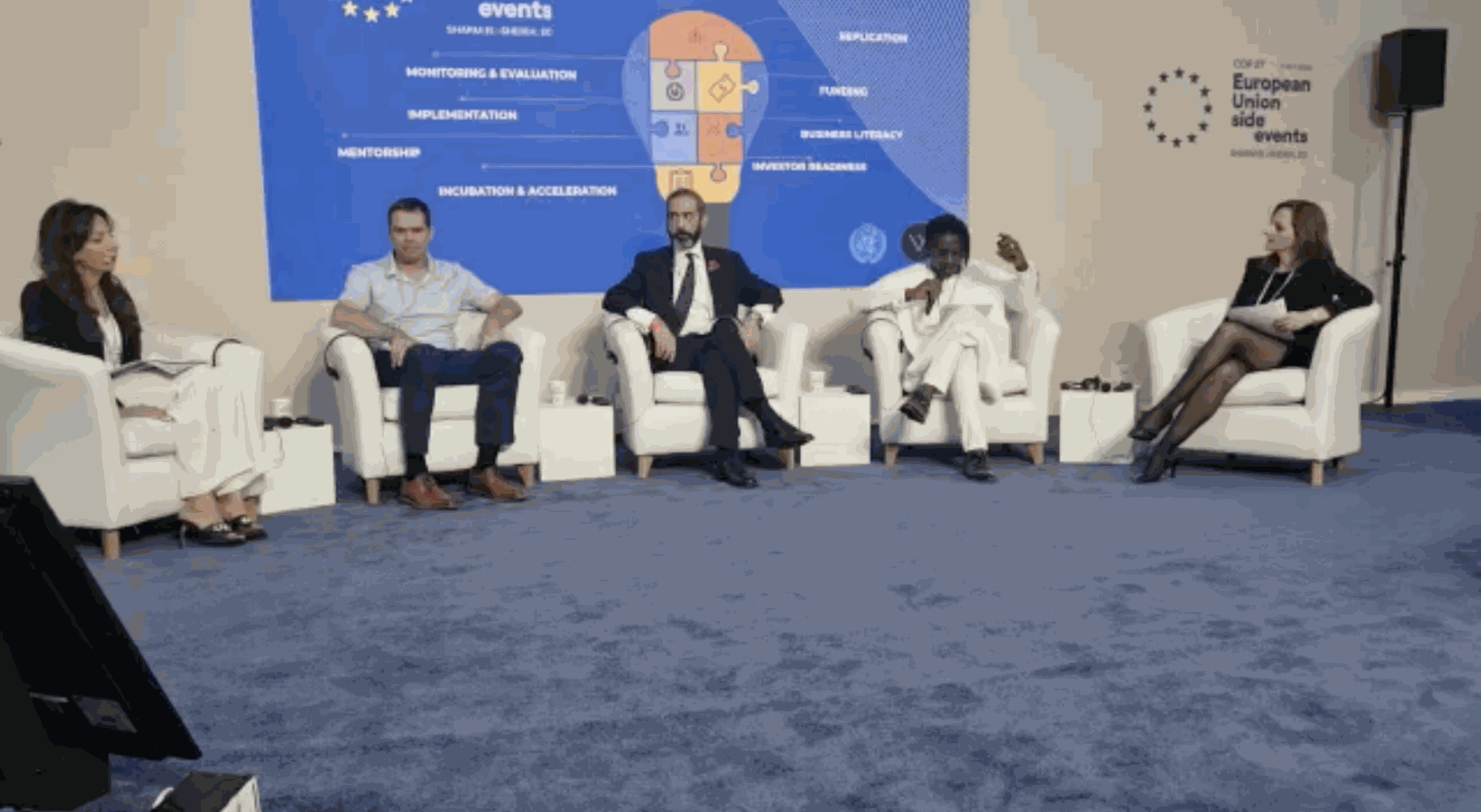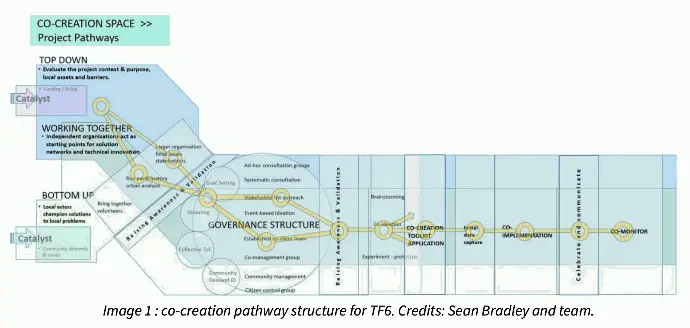At
UNFCCC COP27 in Sharm- El-Sheikh (Egypt), NBS Task Force 6 of EU Horizon 2020 Research
and Innovation Projects was chaired by Ingrid Andersson, IKED/URBiNAT, and
Maria Carmen Garcia Mateo, MCG R&I/GO GREEN ROUTES. The panellists included Serge Nakouzi, FAO, Nico Tellie, TUDelft, and Marc Watum, Vision
2030 participating onsite. The panel was joined by Sean Bradley, Niko
Frantzeskaki and Israa Mahmoud online.
The session pulled together diverse experiences and perspectives,
drawing on EU funded research and innovation as well as cases from around the
world on how to integrate and mainstream co-creation in strategic planning and
urban regeneration.


In focus was the question how to realise co-creation of nature-based solutions, and
its high importance in combating climate change. A range of sectoral and city
experiences were considered for drawing lessons how to integrate and mainstream
co-creation in strategic planning and urban regeneration. The representative
from FAO, Serge Nakouzi addressed how Nature Based Solutions play a crucial
role among collaborative community practices in agriculture around the world. Further
Nico Tille described solutions in water management has been subject to
experimentation in the Netherlands and how co-creation can overcome scepticism
and fear when implementing novel solutions. Examples from Africa were presented
by Marc Watum for which co-creation plays a crucial role in order to instil
commitment and ownership. The online participants also added additional
information which also stressed the need of training and capacity building in
the practices of co-creation. The session was highly interactive, and the
audience put forward a number of questions and remarks which were addressed by
the panellists. At the end of the session the two moderators summarised by
concluding that co-creation activities when arranged fruitfully have a great
potential to give seed to bottom-up initiatives and inclusive communities.

